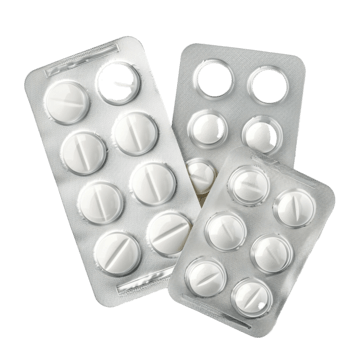Mefenamic Acid

Mefenamic Acid 250mg
Mefenamic Acid is a nonsteroidal anti-inflammatory drug (NSAID) used primarily to relieve mild to moderate pain, such as menstrual cramps, headaches, and muscle aches. By inhibiting the production of prostaglandins—substances in the body that mediate inflammation and pain—mefenamic acid helps alleviate discomfort while also reducing fever. It is often taken for short-term pain relief and is effective in managing pain and inflammation associated with various conditions.
Order NowDescription
Mefenamic Acid is a non-steroidal anti-inflammatory drug (NSAID) used for the treatment of mild to moderate pain, including menstrual pain, and to reduce inflammation. It works by inhibiting enzymes in the body that play a key role in inflammation and pain signaling, thereby providing relief from discomfort.
Uses / Indications
- Menstrual pain (dysmenorrhea)
- Mild to moderate pain (e.g., headaches, dental pain)
- Musculoskeletal pain
- Post-operative pain
- Pain associated with inflammation
Dosage and Administration
Adults:
Typically, the dosage is 500 mg taken orally initially, followed by 250 mg every 6 hours as needed, not to exceed 1000 mg in a 24-hour period.
Children (aged 14 and older):
Typically 500 mg initially, followed by 250 mg every 6 hours as needed.
Note: Please follow your doctor’s specific instructions regarding dosage and duration of therapy.
How It Works (Mechanism of Action)
Mefenamic Acid exerts its effects by inhibiting the cyclooxygenase (COX) enzymes, which are crucial for the synthesis of prostaglandins—hormone-like substances in the body that mediate inflammation and pain. By reducing prostaglandin levels, Mefenamic Acid alleviates pain and inflammation.
Side Effects
Common side effects:
- Nausea
- Diarrhea
- Stomach pain or discomfort
- Dizziness
Rare/serious side effects:
- Severe allergic reactions (rash, itching, swelling)
- Liver problems (e.g., jaundice)
- Kidney issues (e.g., decreased urine output)
Contact your healthcare provider if you experience any severe side effects.
Precautions / Warnings
- Discuss your full medical history with your doctor, especially if you have liver or kidney issues, or a history of stomach ulcers.
- Use with caution in patients with cardiovascular disease as it may increase the risk of heart problems.
- Avoid using in late pregnancy, as it can affect the fetal blood circulation.
Drug Interactions
Mefenamic Acid may interact with:
- Other NSAIDs or corticosteroids (increased risk of gastrointestinal irritation)
- Anticoagulants (increased bleeding risk)
- Drugs that are processed by the liver (increased side effects or decreased effectiveness)
- Diuretics and certain blood pressure medications (reduced effectiveness)
Always inform your healthcare provider of any other medications or supplements you are taking.
Storage Instructions
- Store at room temperature (15°C–30°C / 59°F–86°F)
- Keep away from moisture and direct sunlight
- Keep out of reach of children
Missed Dose / Overdose
Missed a dose?
Take it as soon as you remember. If it’s almost time for your next dose, skip the missed one and resume your normal schedule. Do not take extra medicine to make up for a missed dose.
Overdose symptoms:
- Nausea and vomiting
- Stomach pain
- Drowsiness
- Confusion
In case of overdose, contact a poison control center or seek emergency medical help immediately.
Contraindications
- Allergic to Mefenamic Acid or any other components of the formulation
- History of gastrointestinal bleeding or ulcers
- Severe renal impairment
Brand Names / Alternatives
- Ponstel
- Generic name: Mefenamic Acid

